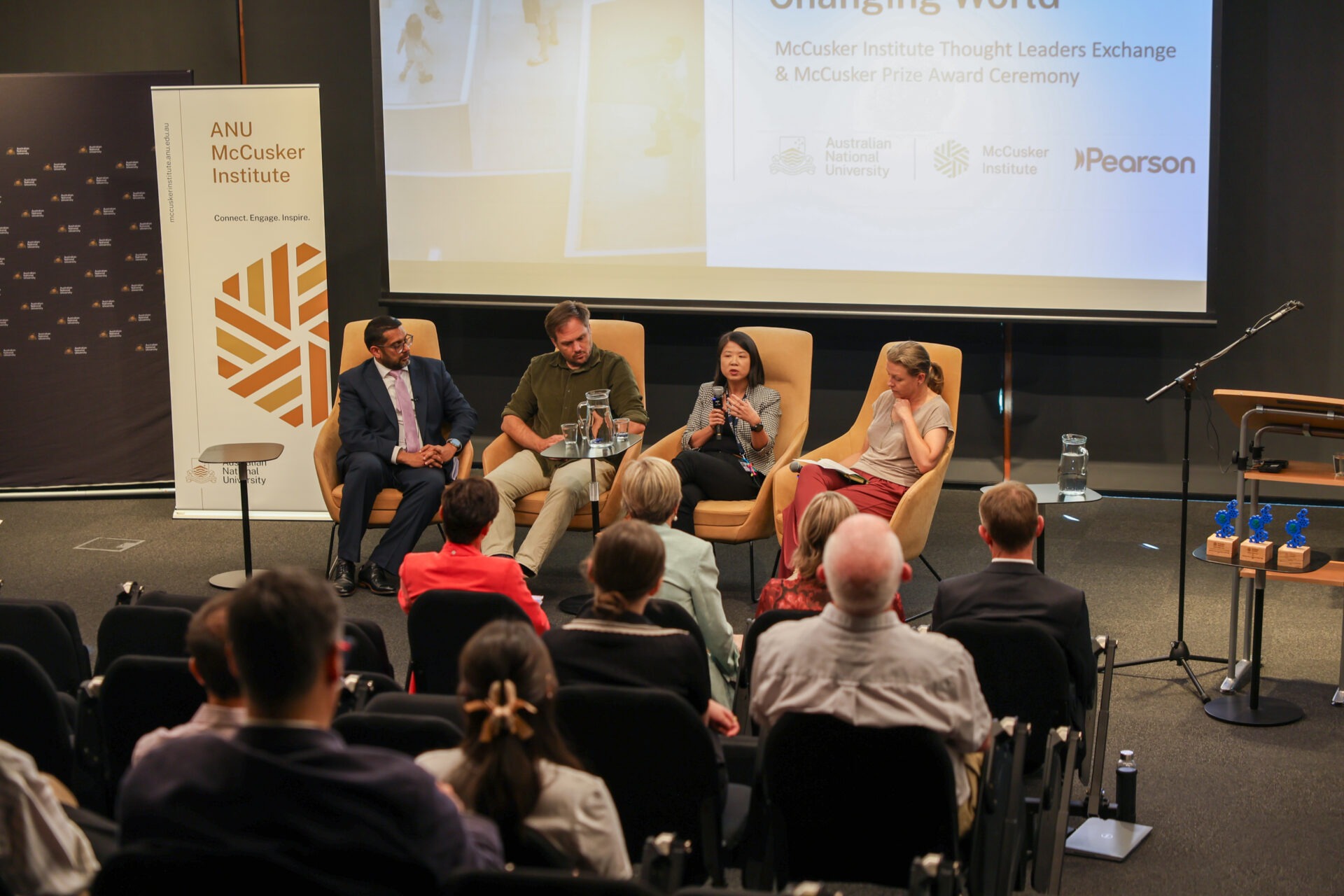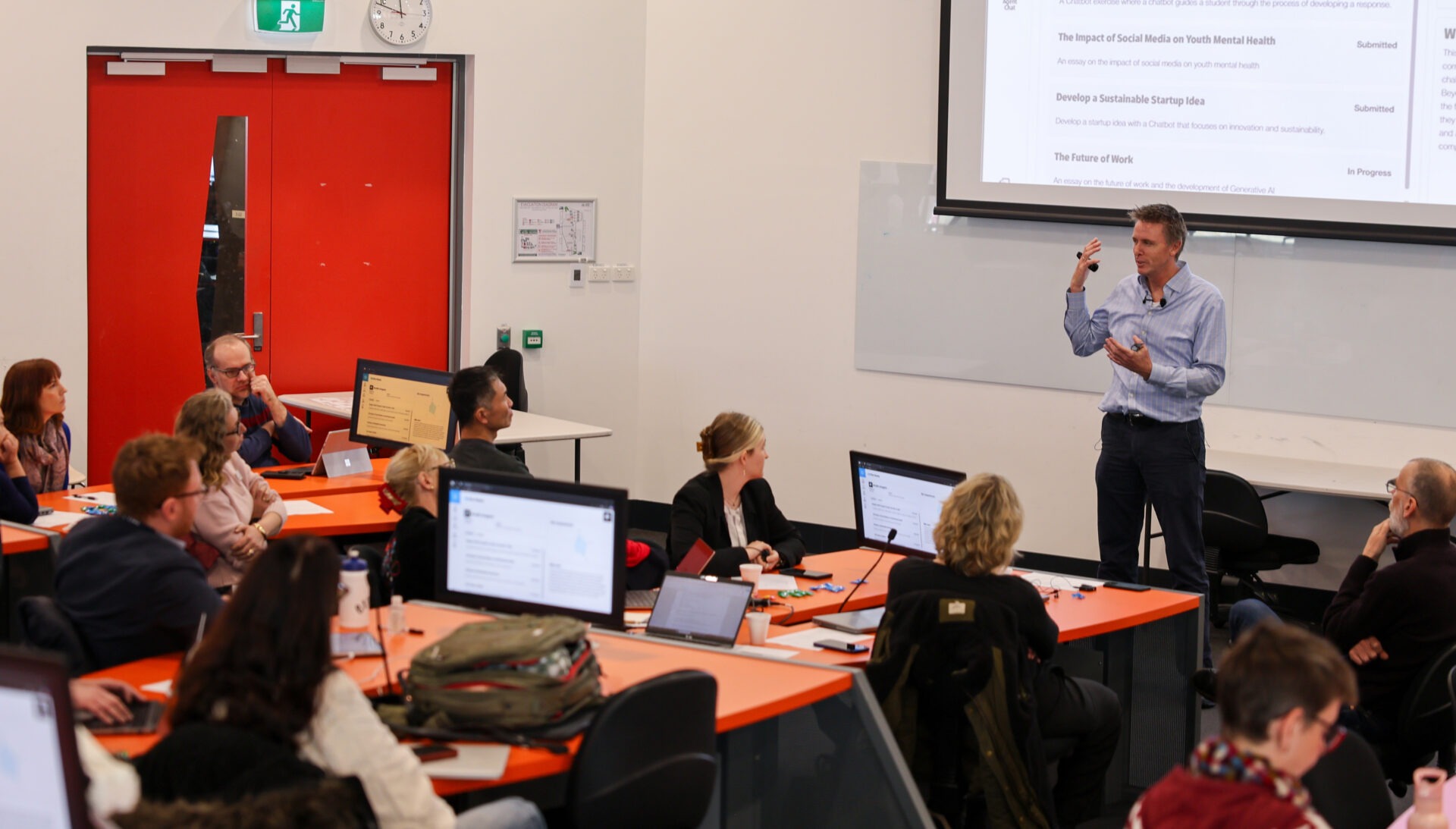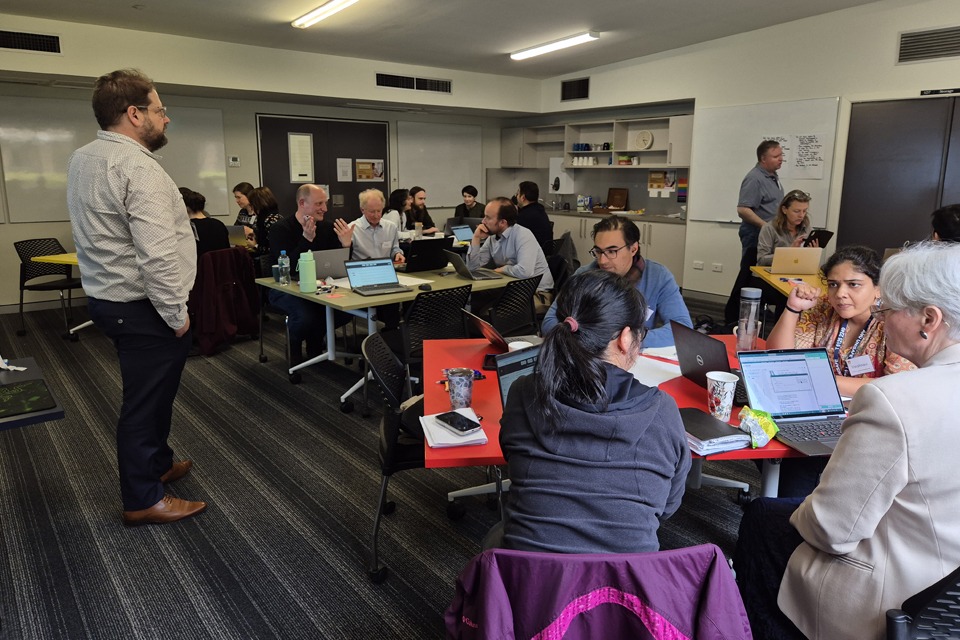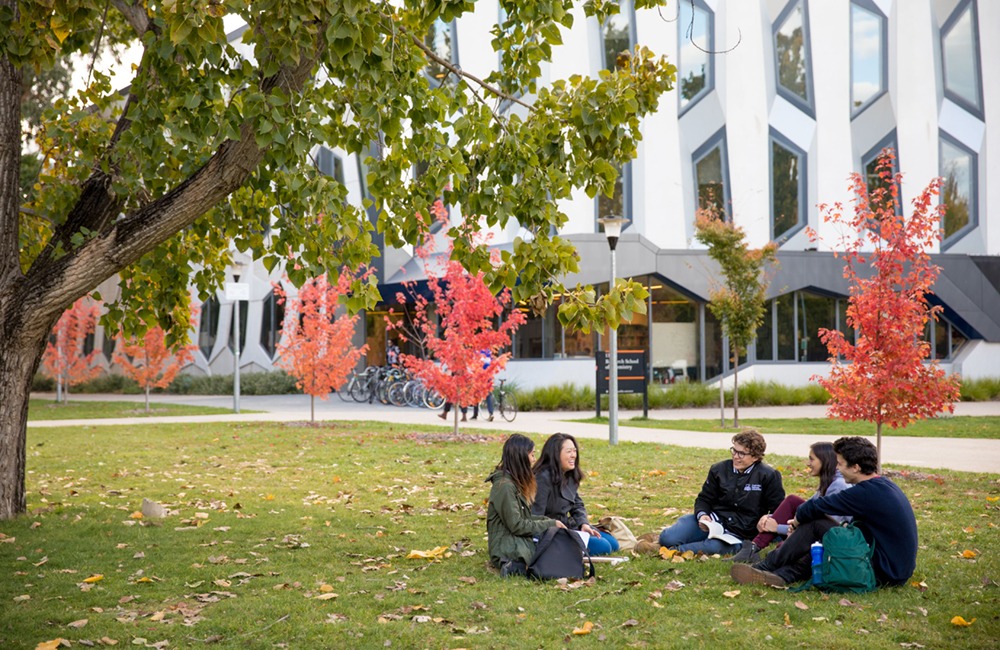Highlights from the Blended Learning Lunch Vox
Last week I was fortunate enough to facilitate a Blended Learning Lunch Vox with five brilliant panel guests.
First, Professor Joe Hope from the Research School of Physics presented on the flipped learning approach that led his students to give rave reviews, improve a full grade band and engage more fully.
“Lectures” at home. “Homework” in class.
Joe explained that being in person is sometimes better than using a screen – but not always! He explained the difficulty of addressing all students’ needs during lectures, especially when they are experiencing content for the first time.
Flipped learning can be more personalised, even in large classes. Students watch videos and undertake tasks in their own time, then come to Joe’s workshops ready to ‘play’ with the concepts, ask questions, apply knowledge, and consider the bigger picture.
How did students feel about the preparation tasks? In the words of one student:
Fantastic. Very easy to take at your own pace, reinforces learning as you go. It’s great to get all the material out of the way before the workshop so there’s heaps of time to trouble shoot.
Or put more concisely by another student, “They be hella sick yo“.
Student tips for online content
Student Edward Troccoli has experienced both the traditional and flipped approach, and finds he learns more with flipped. Speaking about the social pressure around not asking too many questions in lectures, he says students appreciate the safety of seeking clarifications in interactive workshops without a big audience.
He identifies pausing and rewinding videos as very useful for students who are feeling stuck, or needing a break. He cautions though to not replace lectures with equally long videos. Online material is more fatiguing than in-person content. Keep videos short, fast paced and engaging – do not just talk to slides.
Edward also suggests providing notes alongside video, for easy reference. It’s not always practical to re-watch a video to fill in memory gaps – especially during a workshop. It’s easy to find information rapidly in notes: “Ctrl+F [“find” function], that’s quite useful”.
Using games to explore complex issues
We were also lucky to have Associate Professor Siobhan McDonnell from Crawford School of Public Policy who discussed “Cyclone Anu”, the immersive online game she created. It’s a virtual Work Integrated Learning (WIL) experience embedded in her course, played using MS Teams and tools readily available in the Learning Management System (LMS, currently Wattle).
The first six weeks require students to work through self-paced online content, followed by active workshops, where they consider how to apply the knowledge in a variety of contexts. They are then allocated to play a role within an INGO (International Non-Government Organisation) or a village. In the first week of the game, a cyclone hits and villages are shut down with no road access or telecommunications. It gives students an opportunity to explore and practise managing very complex issues in a safe environment, in real time.
It’s very easy to describe how disaster planning needs to reach all areas of a community and all subgroups. And all the students […] just start nodding at that point, you know, it’s kind of quite obvious […]. But it’s completely different when you have to play it in a game.
Associate Professor Siobhan McDonnell
Siobhan described how the walls of the classroom slowly disappear, and students become attached to their roles. She receives emails years later from students expressing how events in the game have mimicked their real-life experiences.
“That learning really stuck”
Siobhan’s past students Rachel Dunstone and Ta’hirih Hokafonu shared just how deeply they became involved in the game. They said the “secret” to the game’s success was how carefully Siobhan chose the roles they each played.
She intelligently selected people to roles that they’ve never been exposed to. […] The selections of people play the key role and force us to use all of our understanding and our own personal experience.
Ta’hirih Hokafonu
Rachel, already with 18 years’ international experience as a government official including in humanitarian aid provision, played the role of a “powerless village woman” with little control over events. Ta’hirih, who in real life has worked for Tonga and New Zealand’s public service providing policy advice and managing aid projects, was given the role of a village Chief, required to balance conflicting needs and interests at different levels. They were pushed to see the situation from new perspectives. It was uncomfortable and challenging, but impactful.
Intellectually, when I went into Siobhan’s course, I understood a lot of the concepts. But then doing the game helps you to actually physically experience them. […] You understand what that vulnerability actually feels like on the ground.
Rachel Dunstone
For Rachel, the game exposed the lived reality of many communities struggling to adapt to natural hazard disasters under climate change, and what it must be like to be on the other side of the international humanitarian system. The inclusion of real-life experts in the game was a particular highlight.
All game panellists reinforced the need to provide communication and support options, and careful role allocations.
What next?
You can watch the full Lunch Vox here, or read more about Joe Hope’s flipped classroom and Siobhan McDonnell’s Cyclone Anu game.
Alternatively you can:
- Attend a Blended Learning workshop
- Read our new Blended Learning resources
- Book an Education Design consultation to discuss blended learning for your context
Thank you to all the panellists who took the time to talk about their experiences and approaches. Their honesty and authenticity allowed us to gain a much deeper understanding of flipped and blended learning.
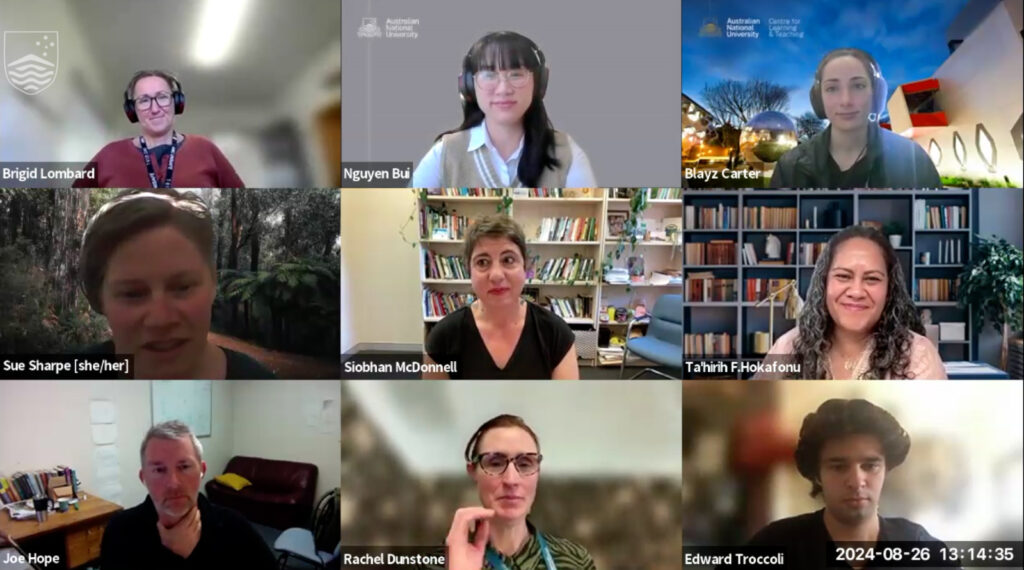
The presenters (Dr Siobhan McDonnell, Ta’hirih Hokafonu, Dr Joe Hope, Rachel Dunstone and Edward Troccoli), facilitator Sue Sharpe and behind-the-scenes organisers Dr Nguyen Bui, Blayz Carter and Brigid Lombard during the Lunch Vox.
Sue Sharpe, Education Designer, and Blayz Carter, Program Support Officer, Centre for Teaching and Learning
